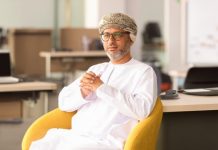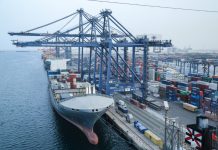Oman LNG’s social investment programmes cover the entire Sultanate with more than 6000 projects – ranging from education to healthcare to preserving the environment and road safety
Oman LNG invests 1.5 per cent net income after tax (NIAT) to contribute to sustainable social development programmes. To further strengthen its robust corporate social responsibility (CSR) efforts with more focus and prominence, Oman LNG’s board of directors decided to establish an independent legal entity back in 2009. July 1, 2015 marked the operational start-up of Oman LNG Development Foundation (ODF). The main objective was to secure sustainability of the CSR programmes even beyond the existence of the founding company, Oman LNG. Additionally, the ODF conducts studies to serve and develop the society, while maintaining the existing levels of support – established through the framework of Oman LNG’s CSR – in the wilayat of Sur and other wilayats across the Sultanate.
The foundation takes a four-pillared approach to CSR:
- Corporate Social Responsibility (CSR) (Sustainability) – Brings sustainability into the projects, running them as thematic programmes to provide continued social investment support. CSR is divided into:
- A community fund targeting initiatives related to the Sur community where its world-class, three-train liquefaction plant is located.
- A national fund that covers a large swath of the company’s social development programmes across the nation.
- A reserve fund to ensure continuous financial sustainability for current and future CSR projects/programmes.
- Delivering value for Oman LNG and Shareholders (Synergy) – Through providing corporate affairs support to enhance the brand, manage reputation and sustain Oman LNG’s license to operate.
- Secure the Future (Perpetuity) –
Through collaborations and partnership, collectively build self-sustaining organisations, businesses and/or institutions while simultaneously fulfilling the needs and demands of the society. - Centre of Excellence (Partnership) –
Enable others to develop CSR initiatives through partnerships, knowledge sharing, and funding. A sustainable future is more successful when you do it together.
In 2016, one year after establishment, ODF’s high-degree of CSR practices started to receive international recognition: the ‘Best Corporate Social Responsibility Programme of the Year’ award from Petroleum Economist; the Asia Best Corporate Responsibility Practices award and the Asia Best Community Development award. In 2017, the foundation received the most prestigious acknowledgement, ‘His Majesty Award for Voluntary Work 2017’, the highest achievement in Oman for CSR efforts and regionally the ‘Best Company in Social Responsibility 2017’ by Arab Best Award in the Arab world. In addition, Shell International recognised the foundation for its exemplary CSR efforts; all significant acknowledgements from industry peers and beyond. This acknowledges ODF’s unique CSR model supporting interests of the Government of Oman, NGOs and other stakeholders who helped to establish the vision of its CSR programmes and the creation of ODF.
Today, the company’s social investment programmes cover the entire Sultanate with more than 6000 projects – ranging from education to healthcare to preserving the environment and road safety – reflecting Oman LNG’s sincere interest to embed the principles of social responsibility as part of its core existence.
Contribution to the social and economic development
Derived from Oman LNG’s core objective to deliver tangible value to Oman and its people through social investment by capitalising on the country’s natural gas resource, the company has ever since looked at many social and economic opportunities with great diligence.
Viewed from that perspective, it is easy to understand the reasoning behind Oman LNG’s investment in the establishment of Sur General Hospital, even before the company shipped its first volumes of liquefied natural gas (LNG) in 2000.
“We believe, that as a responsible corporate citizen, Oman LNG has an obligation to bring home to the community, and the country at large, the benefits born of delivering LNG to customers in various parts of the world, an endeavour through which the company earns substantial revenue for the country,” says Khalid Al Massan, CEO Oman LNG Development Foundation. “Today, Oman LNG is the largest contributor to the national economy, after oil. Additionally, over the past eighteen years, our company’s social investment programmes have spanned the length and breadth of the country. Our success in working with a number of key stakeholders and partners has led to measurable improvements to national healthcare, entrepreneurship, tourism and employment to maintain a fruitful relationship between Oman LNG and the people of the Sultanate.”
The CEO adds, “Through our empowerment philosophy, we continue to develop talent and help remove barriers to reach success. Our aim is to develop all individuals to their fullest potential. We support in-country value through focused efforts towards developing local content and stimulating local business ventures by enabling Small Medium Enterprises (SMEs), a major cornerstone of Oman’s economy, to flourish and providing equal opportunities to compete for all service contracts. The aim is to empower people of all levels of society.”
Since its inception, Oman LNG has been providing training and development opportunities for Omani graduates, job-seekers, volunteers and other talents in partnership with government entities, training institutes and other specialists. Such training programmes have led to the employment of many Omanis, either by self-employment or job-secured employment. One of the main training for employment programmes is facilitated by the Oman Society for Petroleum Services (OPAL). The programmes are designed to equip the candidates with the essential skills of specific disciplines and vocations to meet the demands of the job market. In addition, the successful completion of the training programmes were linked to secured employment opportunities in a number of companies in the private sector, thereby boosting the Omanisation rate in this vibrant sector, an essential contributor to Oman’s economy. Vocational training provides practical knowledge to individuals such as photography, farming, cooking, traditional tailoring, handicrafts and other fields of work to support SME development in the country. Most of the programmes targeting women have been delivered in coordination with the Omani Women Association (OWA).






